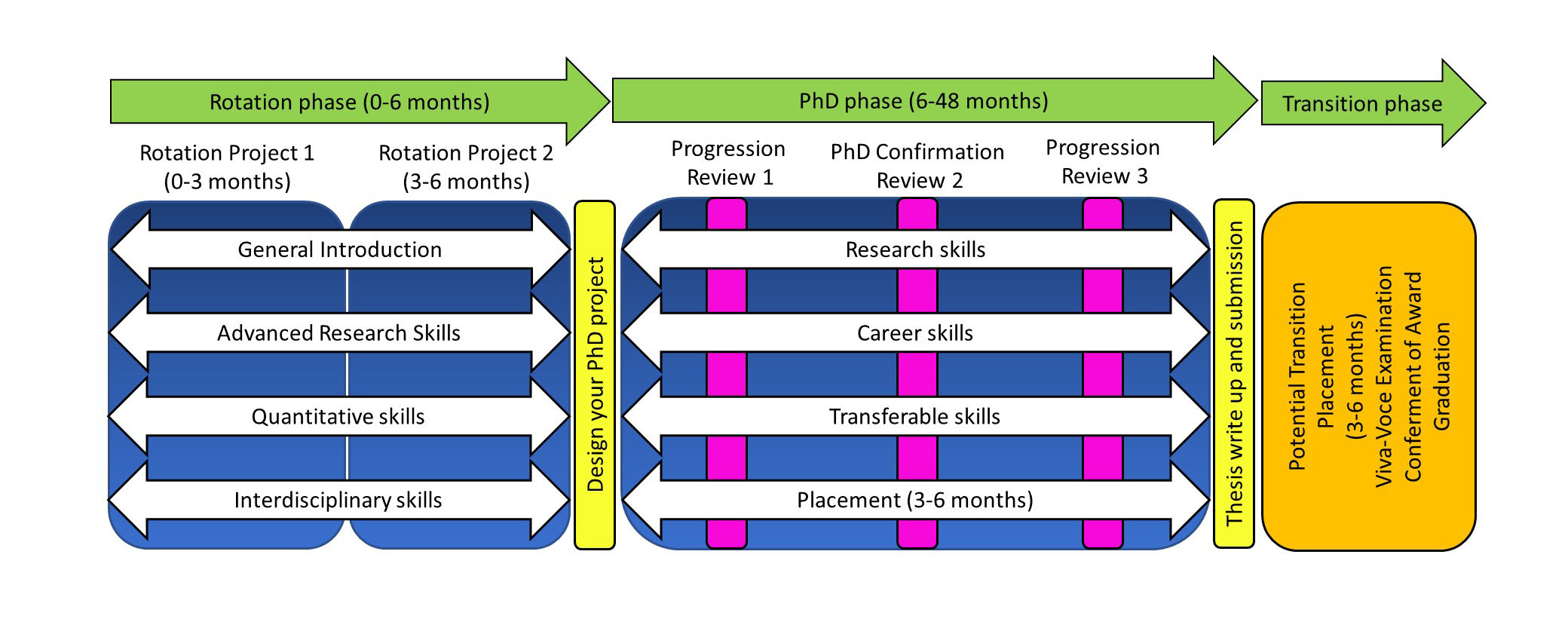
The programme will integrate general research training and transferable skills development and adopt an interdisciplinary approach to study immunology in health and disease. Training will commence in year 1 with a dedicated 2-week workshop Introduction to Advanced Research Skills, encompassing, Learning Needs Analysis, Academic Integrity, Time Management, Working with your Supervisor, Research Etiquette, Good Laboratory Practice and Critical Appraisal of Literature.
Training continues with a week of Research Skills for Biomedical Sciences, covering hypothesis generation and biostatistics, followed by Quantitative Cell Biology using Informatics and Artificial Intelligence, R coding, RNA-Seq analysis of tissue and single cells, data visualisation, clustering and dimensionality reduction, proteomic analysis and protein interaction networks. These complementary courses give students a strong background in data analysis.
Additional courses accessible to students, to augment their skill-base, include Artificial Intelligence, Genomics Medicine and Bioinformatics and Systems Biology. Students will also have access to courses in imaging provided by our Biomedical imaging unit, covering advanced light and electron microscopy with image analysis training in ImageJ/Fiji/Amira.
The programme will support students in designing their multidisciplinary training needs, from registration to graduation, monitored by the Faculty Graduate School. Individual training will be based on a “needs analysis” that is reviewed during progression and confirmation reviews (Figure 1) to allow generation of a flexible development plan where the student accesses research and transferable skills training opportunities throughout their tenure.

Recent Comments